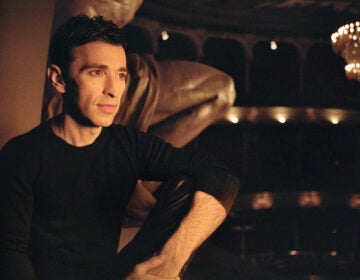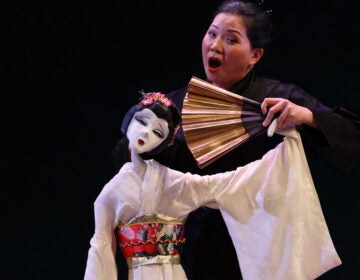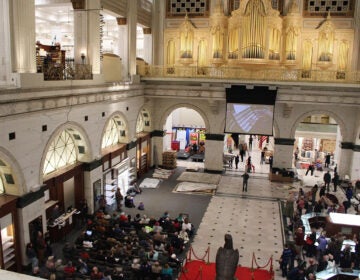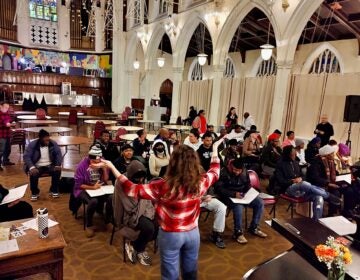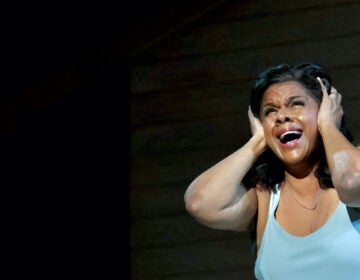Opera Philadelphia will offer all tickets for $11 all season long
All tickets, all season, will start at $11 and go up as much or as little as patrons wish.
Listen 1:06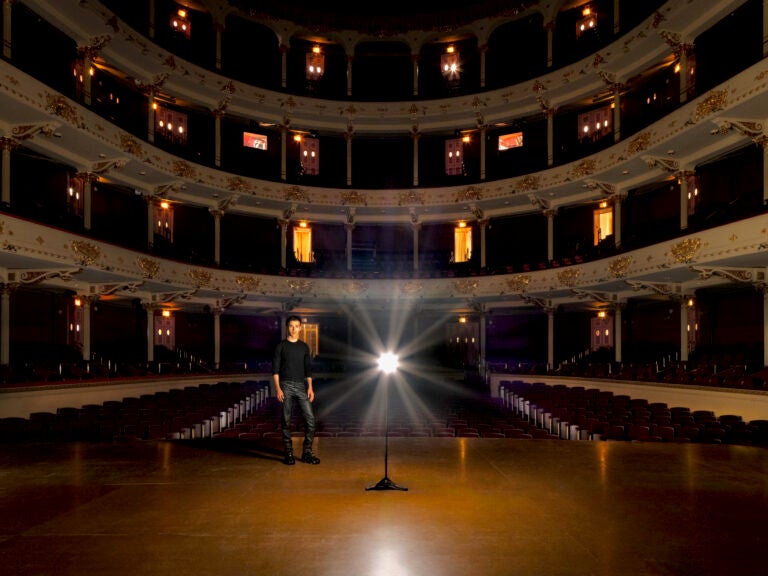
Anthony Roth Costanzo stands on the stage at the Academy of Music. Costanzo is the new general director of Opera Philadelphia. (Opera Philadelphia)
From Philly and the Pa. suburbs to South Jersey and Delaware, what would you like WHYY News to cover? Let us know!
Opera Philadelphia has become the only major opera company in the country to launch a pay-what-you-wish model. All seats during the 2024–2025 season can be purchased for $11, with the option of paying more if the patron wishes.
Normally, a ticket can cost from $26 to $226.
“When it doesn’t cost $150 to have a prime seat at the opera — in fact, every ticket, from box to balcony from front row to last row, costs $11 or pick your price — that changes how we relate to opera,” said general director Anthony Roth Costanzo. “Who sits in those seats? That changes the stories we can tell.”
Costanzo is the Opera’s new director — he took over in June after David Devan stepped down — and decided a universally affordable price would democratize opera, and lead to fundamental changes in programming and marketing.
“We’re told in opera that you got to program “Carmen,” because everybody wants to come to “Carmen” and that’s how you’ll sell your tickets,” he said. “That limits us in some ways. This is not to say I don’t love “Carmen” like everybody else, but we don’t need to make every decision based on whether it will sell an expensive ticket.”
Other Philadelphia performing companies have adopted pay-what-you-wish pricing models. Azuka Theatre pioneered the concept in 2016 and has stuck with it ever since. Curio Theatre in West Philly experimented with it and Philadelphia Theatre Week did so last year.
Opera Philadelphia is the largest performing arts company to try out the concept.
Costanzo settled on a minimum of $11, as opposed to $0, as Azuka Theatre has maintained, because it is less than the cost of a movie ticket but enough to convey to patrons that opera involves significant production costs.
“We wanted to show that there was some value in what you’re seeing often,” he said. “You’re seeing millions of dollars on stage.”
The first production in which this ticketing model will occur will be in September for the American premiere of “The Listeners,” by Philadelphia-area composer Missy Mazzoli (“Breaking the Waves,” 2016). Costanzo said it will be the most expensive opera the company has ever attempted.
The opera is about a band of people who experience a mysterious and unidentifiable sound. The group then becomes vulnerable to the proclamations of a cult-like leader, which Costanzo says will resonate with the current election cycle.
It’s an ambitious production, particularly for a company still recovering from debt incurred during the pandemic, which forced Opera Philadelphia to postpone productions to future seasons and cancel its season-opening festival.
“When I took office on June 1, I did a lot of unraveling of the budget and I quickly realized that we had not only unpaid bills, but we had a cash shortfall,” Costanzo said. “We had to raise a lot of money quickly.”
He said he has raised $7 million in about 10 weeks, which allowed the company to settle its debts. Costanzo attributes the success of his fundraising, in part, to the new “pick-your-price” ticketing model.
“That fundraising is not only subsidizing this ticketing model, but a lot of it is inspired by this ticketing model,” he said. “Once you step into that opera house and you see demographically how different it feels because of pick-your-price, it’s going to inspire not only individuals to give, but I think the civic action will inspire corporations and foundations.”

Saturdays just got more interesting.
WHYY is your source for fact-based, in-depth journalism and information. As a nonprofit organization, we rely on financial support from readers like you. Please give today.



